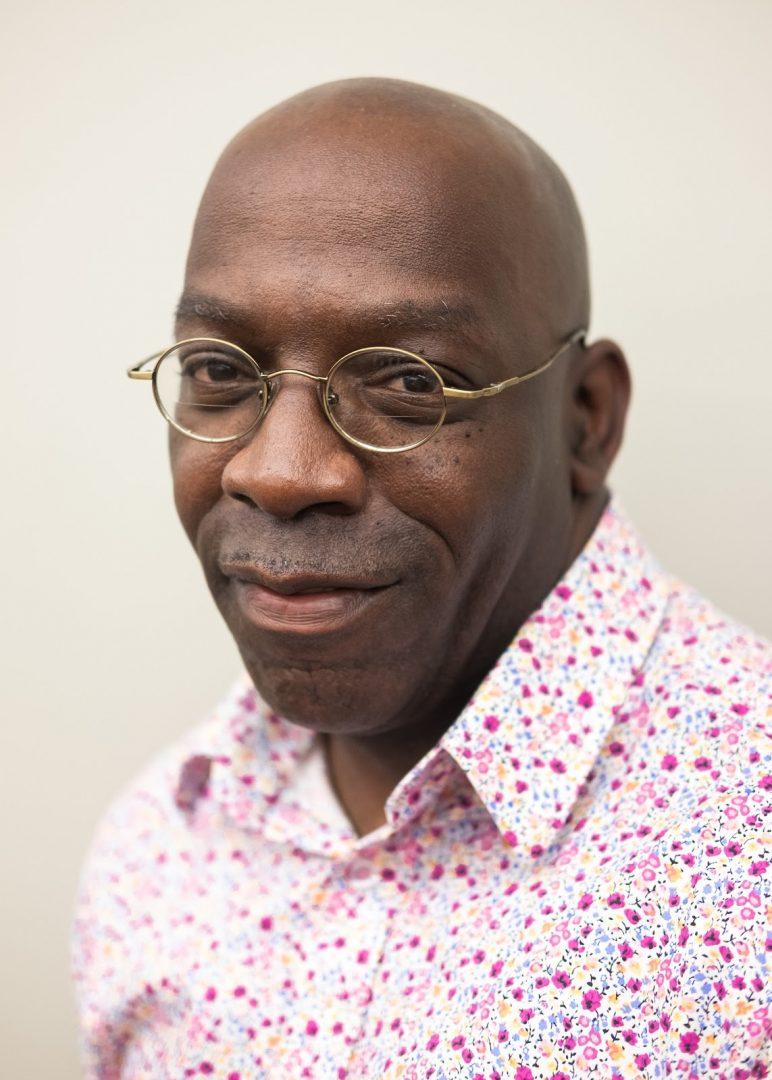Everyone has a story, as they say. Doc Lewis, host of the Gospel Show on 90.7 KFSR, is more interested in hearing the stories of the children born with cerebral palsy that he has met while speaking to schools around the Valley.
“What we’re doing is telling people with intellectual disabilities that you can be successful. That’s my message to them,” Lewis said.
Lewis was born 5 months premature in Gonzales, Louisiana, and was pronounced brain dead for nine hours after birth. But miraculously, he survived. He was then diagnosed with cerebral palsy (CP) and polio.
Cerebral palsy is a disorder of movement, muscle tone and posture that occurs due to an immature, developing brain. CP is the most common motor disability, and one in 323 children have been identified with CP, according to the Centers for Disease Control and Prevention.
Although Lewis now has gone through years of physical and speech therapy, he walks with a limp and is rigid sometimes in speaking.
But this doesn’t stop Lewis at all from sharing his story. He often uses his limp as a point of conversation to share with and educate people about CP, noting particularly when people around campus stare at him.
“It used to be a challenge, but now I use it to my advantage to say, ‘Hey, let me tell you why I walk the way I walk,’” Lewis said. “Then, when I introduce CP and tell them I was born this way, they look amazed. And then I find out that some of their cousins have cerebral palsy.”
Lewis wasn’t always as confident talking about his condition as he is now. His journey to this point began all the way back in Louisiana.
Growing up with a disability and being an African-American in the South, Lewis had a difficult childhood. He had to go through years of physical therapy and had a speech therapist to help him talk properly.
He spent much of his childhood in the hospital going through physical therapy, lifting weights, learning how to walk and learning how to talk. Lewis said he didn’t learn to talk properly until he was 7 years old.
But Lewis said his family is what saved him and kept him going on in his fight.
After being bullied at remedial school when he was 7, Lewis came home, grabbed a clothes hanger on the door and decided then that he was going to kill himself.
Luckily, his sister came in and told him that someone’s going to hear his story many years later and it will help people.
In 1985, after being barred from playing basketball for his high school, East Ascension High, he moved to Bakersfield, California, where he received an offer to play at Bakersfield High.
His coach was supportive, never seeing him as someone with a disability. When a newspaper reporter came to do a story on Lewis, saying, “We’re here to do a story on your disabled player,” the coach replied, “We don’t have a disabled player.”
“They didn’t look at me as having that particular handicap. They just looked at me as a normal basketball player,” Lewis said.
That moment was very crucial to Lewis, as it’s the same message he wishes to impart to any who are suffering from the same condition.
Lewis now travels around the Valley, speaking in schools about his life experiences, hoping those with similar circumstances will understand that they too have the ability to be successful, despite their disabilities.
“When I see people in wheelchairs, I’ve been there. I know exactly what to tell them,” Lewis said. “I don’t bash them. I do not tell them, ‘Look, you’re going to get out of this wheelchair tomorrow.’ I don’t tell them that. What I tell them is that you can be successful right there in the wheelchair.”
He’s been to multiple Special Olympics as a volunteer worker and speaker. Most recently, he was at the 2017 Winter Games in Austria.
His radio work and motivational speaking have garnered him awards, most recently winning the “Black Essence Worldwide Award” in Houston and was runner-up for “Radio Host of the Year” at The Spin Awards in Atlanta and Newsome Awards in Baltimore in 2017.
Despite the awards and speaking in many places around the country, he doesn’t let that go to his head. He makes sure that he keeps his ego down and is humbled by the stories he hears.
“When you go out of the country and you go to these events, you’re not the only one who has a story. I’m listening to the story that the person has,” Lewis said. “It’s intriguing. You’d be surprised by the stories they have, what they’ve been through.
He wrote a book in 2016 called “Let Me Tell You My Story,” which is an autobiographical account of his battle with CP. He is currently writing another book.
“I have no regrets,” Lewis said. “I get asked the question, ‘If you weren’t born brain dead, if you weren’t born 8 ounces, if you weren’t born with CP and polio and God chose to let you be born straight,’ and they ask me if I would take that. I would quickly say no. I’m glad I’m born this way.”





